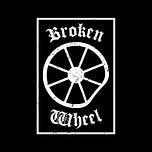- Be not overly righteous, and do not make yourself too wise. Why should you destroy yourself? Be not overly wicked, neither be a fool. Why should you die before your time? It is good that you should take hold of this, and from that withhold not your hand, for the one who fears God shall come out from both of them. -

One way is pretty easy. Don’t be a martyr. Like you, I’m pretty sure that is not what Solomon is referring to.
He’s referring to the idea that those who are wise can meet their destruction by doing what is good, possibly even naively.
The cynic might see that goodness or wisdom may not lead to a long life, so perhaps its better to be good enough to prolong one’s life and no more.
No reason to look for undue attention.
The same goes true for being wicked and acting like a fool, although once again the word overly is used. Are we to be somewhat wicked?
If we are too wicked, we will surely die before out time. That’s a little bit harsher than the punishment for being too good.
Now, what’s this part about taking hold of both? Well in some sense Solomon is telling us to hold onto wickedness and to hold onto righteousness.
If we have a bit of both, the argument goes that it will prolong our life. More than that, he says the man who fears God shall come out from both of them.
We will come out both from righteousness and wickedness? Why would we ever want to shake off righteousness?
Got to say, this sounds pretty weird coming from a religious book.
Okay, but what did we learn in our last post? That was some good context, right? What did verse 15 tell us?
It talks about the righteous man who perishes. That seems pertinent. Why did we say he perishes? Because he persists in righteousness for his own glory’s sake.
That makes sense. In a way, we may see righteousness and wickedness in these verses as insights into man’s view on righteousness and wickedness.
Take kindness. Many think it’s a virtue to be kind, and in some regards there right. It’s even one of the fruits of the spirit.
Is it right to be so kind that you never tell a lost soul that they are headed for Hell? Is that kindness?
Kindness without teeth is worthless. Why teeth? Aren’t teeth used for biting? Is not biting something we would associate with wickedness?
Is mercy worth having in the face of no judgement? What good is it being forgiven if you are not worthy of a punishment.
You are released from a prison with no walls. We end your banishment to wherever you want to go. The death penalty by living to old age has been revoked.
What puzzle have we stepped into?
There are things which man calls wicked and righteous from his perspective that from god’s perspective prove not to be so.
His righteousness may appear to us as wickedness. If it does so, might it be our perspective? Might it be our selfishness?
Then, if one wants to be a true imitator of Christ, one must learn how to forgive and flip tables, to feast and fast, to live and lay down one’s life.
Gaining the eternal view grants correct perceptions.













Share this post